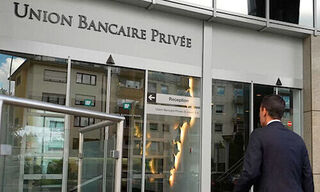A full merger of the wealth management businesses is likely to lead to significant client exits and prolonged internal tumult – and job cuts – in Asia. Investment banking and asset management overlaps will be more easily mopped up by other market players.
The news of a potential merger between Switzerland's two largest banks, UBS and Credit Suisse, extensively reported but not confirmed by finews.asia and the worldwide media over the weekend, will likely have vast implications for the regional businesses of both, including in Asia.
Although it is hard to gauge the exact impacts at this time, any steps to fuse the material businesses of each bank with each other will result in several probable consequences based on experience.
Wealth Client Exits
A jointly managed wealth management business may prompt significant exits of a specific population of ultra-high net worth customers holding substantial portfolios at both.
This is more common than generally understood but it is a logical consequence of UBS being, according to most rankings, the world's largest wealth manager, with Credit Suisse usually following in third or fourth place.
An industry expert with extensive experience in the industry in both Hong Kong and Singapore said clients are extremely uncomfortable with having large portfolios, many of which have similar characteristics, at any one institution.
«That is for sure,» the expert indicated.
Key Question
The key question at this juncture is whether those clients choose to go to smaller Swiss private banks or wealth managers or shift their assets towards a locally based institution.
«If that is the case, Julius Baer, Pictet, and LGT will benefit,» the same banking expert said.
Given this will be the first transaction of such size in recent history and most certainly since the financial crisis in 2008, this is potentially a larger inflection point than many understand given there are now very reliable local players who have grown to be stiff competitors in the meantime and can take up the slack, another expert in the industry maintained.
Brutal Consequences
Any deal, particularly of this magnitude, will have «brutal» consequences, with the overall business that the new combined entity manages being about 60 to 70 percent of the former size when each was tallied up separately before a potential tie-up, the expert continued. This will lead to significant job cuts in the short and long term. UBS currently employs 16,290 in the Asia Pacific region and Credit Suisse 6,890 and a merger between them is more than likely to prompt several thousand job cuts.
A regulatory compliance specialist with specific private banking and wealth management expertise said the new entity will have to undergo enhanced oversight for a prolonged period in both Hong Kong and Singapore, which are traditionally the two main hubs of the wealth management and private banking business in the region.
«That will have a knock-on effect and make more people want to leave. Ultimately, it will result in less business and more job cuts,» the expert indicated, although he mentioned that bedding down the businesses appropriately will be a boon for compliance consultants.
Easily Soaked Up
The same is not as true for the other two main businesses of investment banking and asset management as the market presence of the large Swiss banks is not considered to be as dominant.
The major Chinese banks currently dominate the investment banking rankings in most major categories regionally, and select businesses and teams, such as for M&A advisory and equities, which UBS has traditionally been strong in, can easily be soaked up by the other players. The situation is similar in asset management, which benefits from a larger and more diffuse market and more variety in the number and types of institutions able to take up any slack or pick up attractive franchises.
Still, the general consequences of any deal seem clear and it will affect the other regions where the banks do business in a similar fashion. But until the exact details are known, it will be harder to make more incisive and accurate predictions. As always, the devil will be in the details.



























